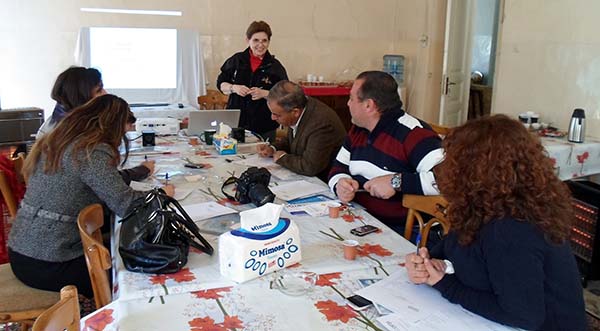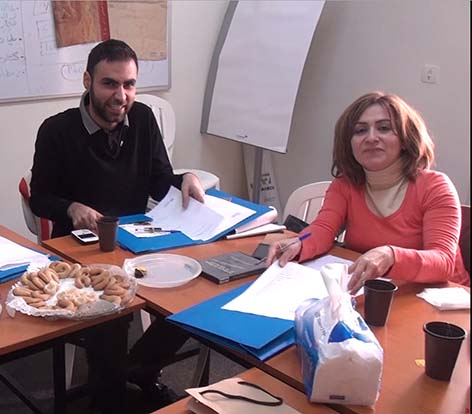A series of countrywide workshops introduced Lebanese journalists to women’s economic empowerment in rural areas in a bid to improve media coverage of the often-neglected topic.
Print, online and broadcast journalists based in various regions of Lebanon learned how to define women’s economic empowerment, how to enter the terminology in their media lexicon and how to cover topics related to promoting gender equality.
MU director Magda Abu-Fadil conducted a series of mini-courses in the Bekaa Valley city of Zahle, the northern port city of Tripoli and the southern city of Tyre where reporters, correspondents, cameramen and photographers became better acquainted with agriculture-based cooperatives that help women become financially independent.
The sessions included knowledge about existing impediments to empowerment.
Abu-Fadil also discussed how advocacy through traditional and social media can enhance women’s economic empowerment, and reviewed case studies of successful initiatives.
The three two-day workshops in February and March organized by the Collective for Research and Training on Development – Action (CRTDA) brought together reporters and civil society representatives from various towns and cities in Lebanon.
They followed an initial course aimed at journalists in the Lebanese capital Beirut.
A session focused on women in the Lebanese economy, how gender equality translates into smart economics, and, how the CRTDA has helped rural women set up cooperatives and their economic impact.
Trainees were given examples of cooperatives in the country’s Bekaa, South and Akkar regions aimed at building women’s productive and leadership skills, facilitating their access to local and international markets and supporting participatory governance and leadership.
A session by journalist Saada Allaw featured results of a media audit on coverage of women’s economic empowerment and gender equality issues.
Participants were then tasked with writing a piece for publication in their respective media, which will be reviewed and edited on a third training day weeks after the initial workshop.
The best coverage from workshops across the country will be awarded and will be published on CRTDA’s website.







